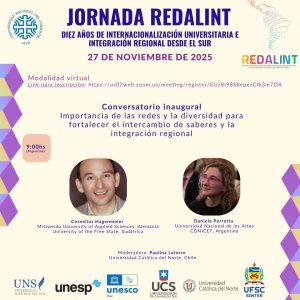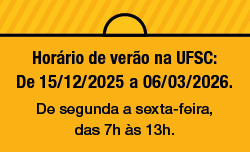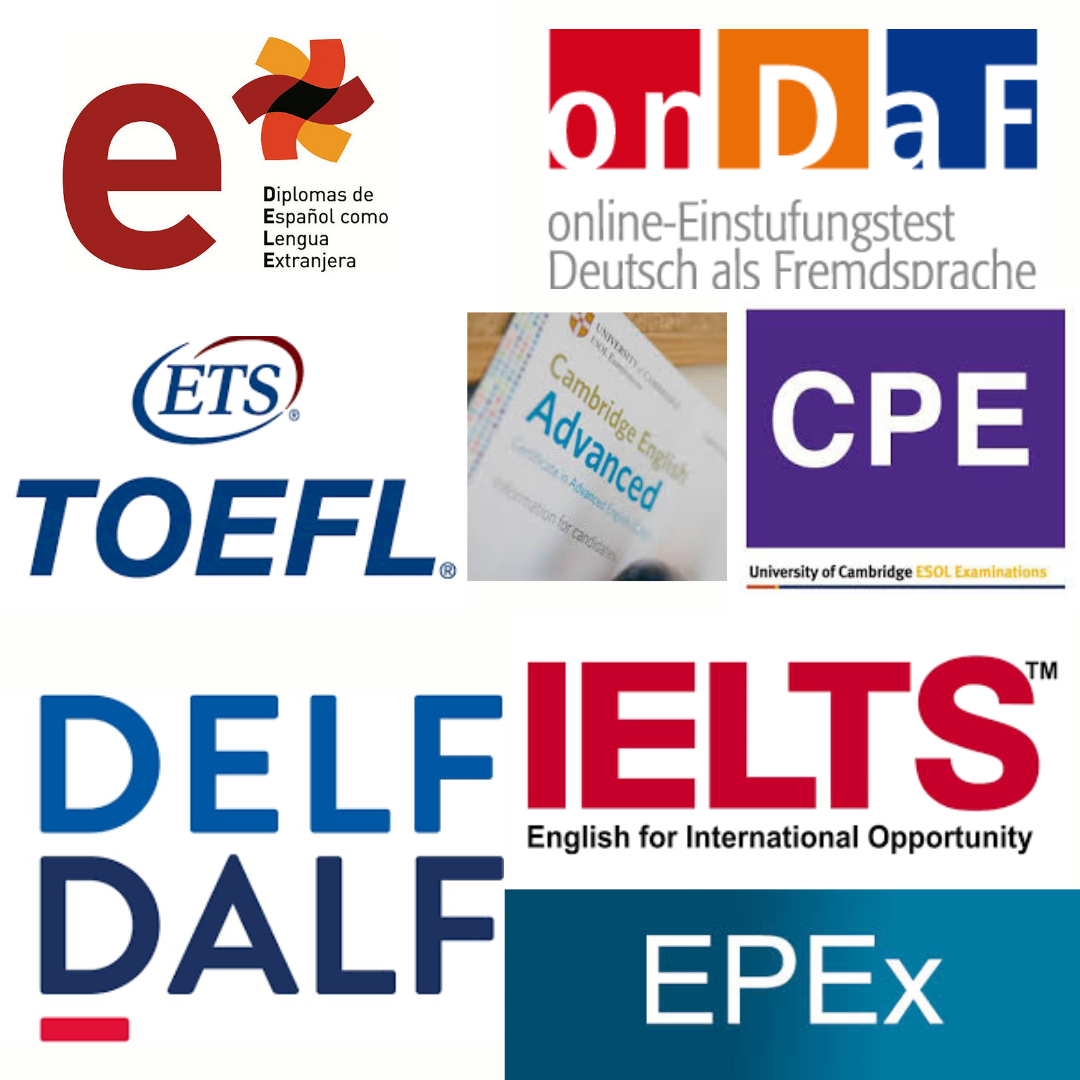SINTER to participate in the “Jornadas REDALINT”: Ten Years of University Internationalization and Integration from the South
 In 2025, the Universidade Federal de Santa Catarina (UFSC), through its Office of International Relations (SINTER), joined the Red de Investigadores y Gestores en Internacionalización de la Educación Superior de América Latina [Network of Researchers and Managers on the Internationalization of Higher Education in Latin America] (REDALINT) as a member university. REDALINT aims to foster dialogue, critical analysis, and collaborative action on the higher education internationalization processes in the Latin American region.
In 2025, the Universidade Federal de Santa Catarina (UFSC), through its Office of International Relations (SINTER), joined the Red de Investigadores y Gestores en Internacionalización de la Educación Superior de América Latina [Network of Researchers and Managers on the Internationalization of Higher Education in Latin America] (REDALINT) as a member university. REDALINT aims to foster dialogue, critical analysis, and collaborative action on the higher education internationalization processes in the Latin American region.
On 27 November, REDALINT will host the free online event “Jornadas REDALINT: Diez años de internacionalización universitaria e integración desde el Sur”. The opening lecture will be delivered by researchers Daniela Perrotta and Cornelius Hagenmeier, on the theme “Importance of networks and diversity to strengthen the exchange of knowledge and regional integration.” The Secretary Pro Tempore for International Relations, Dr. Fernanda Leal, will participate as moderator of the panel “Internationalization Actions”.
Registration for the event is available here.
About REDALINT
The network – created in 2015 and composed of universities from Argentina, Brazil and Chile – aims to foster dialogue, critical analysis, and collaborative action on the higher education internationalization processes in the Latin American region. Products of the existing cooperation within the scope of REDALINT are the REDALINT Journal – Universidad, Internacionalización e Integración Regional, (published biannually); the Latin American Digital Archive on the Internationalization of Higher Education; and the Diplomatura en Gestion de la Internacionalización Universitaria Latinoamericana – a program designed to train university managers in internationalization from a Latin American perspective.
UFSC’s participation in REDALINT does not require the payment of membership dues or any other fees.





 UFSC was the second most requested university by applicants in the 2026 Programa de Estudantes-Convênio de Graduação (PEC-G) Selection Process. Therefore, if you were not selected for UFSC, it is because your score did not meet the minimum required according to the criteria listed in the Call for Applications. Your application may have been redirected to another university to fill available places or placed on a waiting list.
UFSC was the second most requested university by applicants in the 2026 Programa de Estudantes-Convênio de Graduação (PEC-G) Selection Process. Therefore, if you were not selected for UFSC, it is because your score did not meet the minimum required according to the criteria listed in the Call for Applications. Your application may have been redirected to another university to fill available places or placed on a waiting list.









